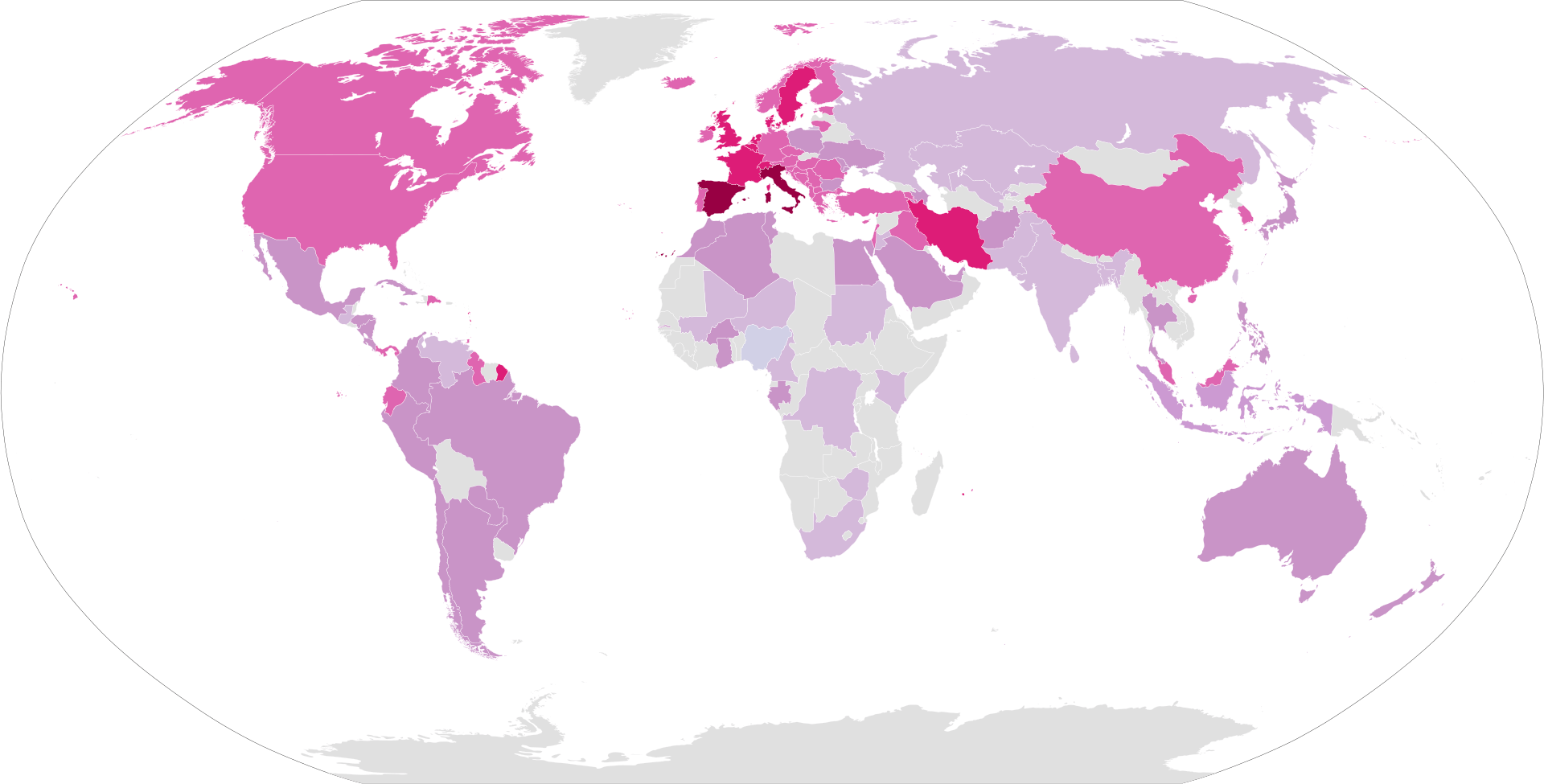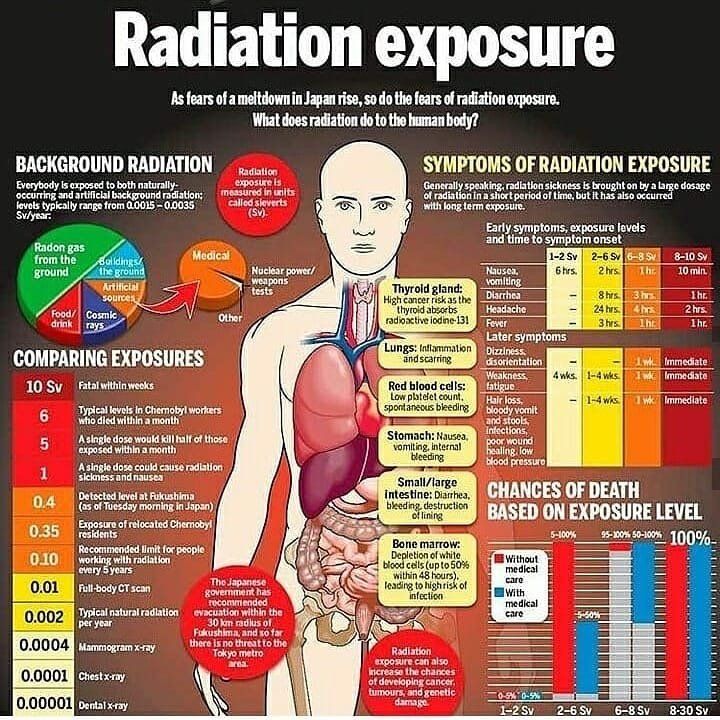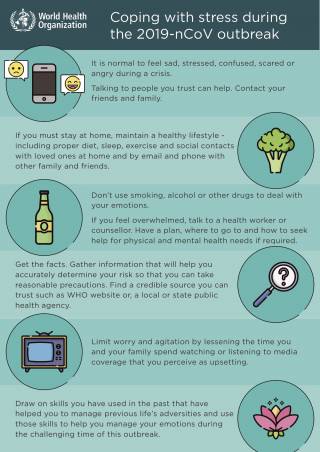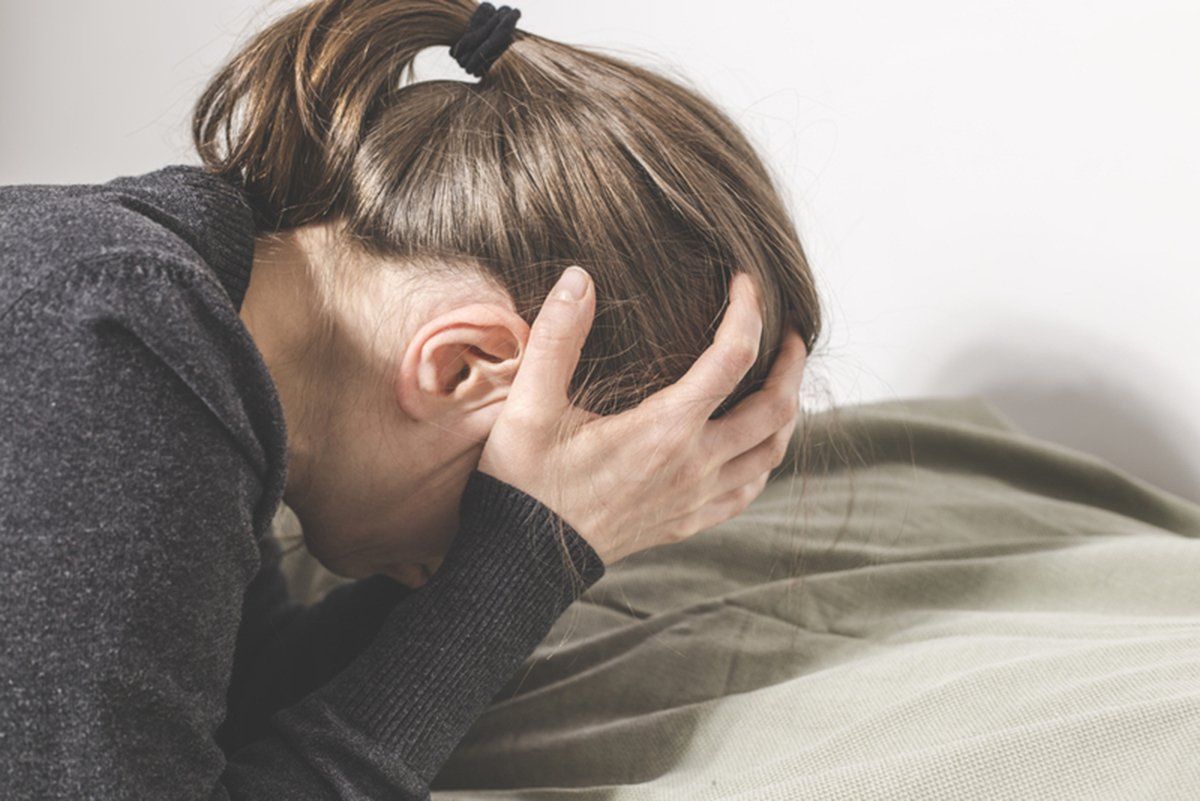AYU-OK Forum
AYU-OK Holistic Health
WORLD PANDEMIC - How do we survive through this? What does the future look like?
The coronavirus has turned life upside down, and when it’s over—which seems far off and even worse, indeterminate—our lives will be changed permanently. That’s always the case after an economic crisis like the Great Recession of 2008-2009 or the stock market crash of 1987. It’s even more true following major turning points in history like 9/11, World War II/the atomic bomb and the Great Depression.
The bigger the cause, the greater the effect.
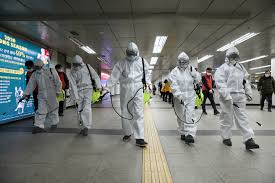
Coronavirus mapped: which countries have the most cases and deaths?
In a few months, the Covid-19 coronavirus has spread all around the world, sending billions of people into lockdown, as health services struggle to cope. Find out which countries are experiencing the steepest growth in cases and where the virus has been most deadly.
What is a coronavirus?
Coronaviruses are a family of viruses that cause disease in animals. Seven, including the new virus, have made the jump to humans, but most just cause cold-like symptoms.
Covid-19 is closely related to severe acute respiratory syndrome (Sars) which swept around the world in 2002 to 2003. That virus infected around 8,000 people and killed about 800 but it soon ran itself out, largely because most of those infected were seriously ill so it was easier to control.
Another coronavirus is Middle East respiratory syndrome (Mers), cases of which have been occurring sporadically since it first emerged in 2012 - there have been around 2,500 cases and nearly 900 deaths.
Covid-19 is different to these two other coronaviruses in that the spectrum of disease is broad, with around 80 per cent of cases leading to a mild infection. There may also be many people carrying the disease and displaying no symptoms, making it even harder to control.
How did the outbreak start?
The source of the coronavirus is believed to be a "wet market" in Wuhan which sold both dead and live animals including fish and birds.
Such markets pose a heightened risk of viruses jumping from animals to humans because hygiene standards are difficult to maintain if live animals are being kept and butchered on site. Typically, they are also densely packed allowing disease to spread from species to species.
The animal source of Covid-19 has not yet been identified, but the original host is thought to be bats. Bats were not sold at the Wuhan market but may have infected live chickens or other animals sold there.
Is there a cure for the coronavirus?
There is no specific treatment, although doctors are trialling existing drugs for viruses such as Ebola, malaria and HIV. Early results seem promising but, until full clinical trials have been concluded, doctors cannot be certain that the drugs are effective.
Work to develop a vaccine is accelerating but it is unlikely to be available until next year.
Coronavirus by 23rd March UK was going into lockdown
View more
COVID 19 Facts and Fears: How Dangerous is it?
As with other respiratory illnesses, infection with COVID 19 can cause mild symptoms including a runny nose, sore throat, cough, and fever.
It can be more severe for some persons and can lead to pneumonia or breathing difficulties.
More rarely, the disease can be fatal. Older people, and people with pre-existing medical conditions (such as, diabetes and heart disease) appear to be more vulnerable to becoming severely ill with the virus.
29th March 2020 - According to tracking from Johns Hopkins 29/03 there are more than 700,000 coronavirus cases and 33,000 deaths worldwide.
I started this blog to provide a space where we can help each other - COVID-19 community support forum. Today all we hear each and everyday is how the virus is still taking so many lives, how many countries are still in isolation / lockdown even curfew. How government hospitals are coping (the front line). With all this going on we are glued to the news listening to bad news after bad new and this is taking an affect on the conscious and subconscious mind. We may not feel it yet, however months in the future we will feel the side effect of this on a mental and physical well-being.
So much information everywhere on COVID-19 for keeping ourselves safe, jobs, homes, food, doctors, government, stock markets, taxes and what many are talking about 5G.
Over the weeks and months I will be adding more and more information to this blog, also collecting your inputs and journey to this blog. A place where we can help support each other with information that can help us mentally and physically. Links to government and company supported schemes, mental well-being checks, physical well-being checks, children education, relationships, money matters, conspiracy theories and how we manage ourselves over the next year getting through this.
Here is one useful link to help keep you safe for now - guidelines.
https://www.mind.org.uk/information-support/coronavirus-and-your-wellbeing/
LIFE is at stillness for many.
So many glued to the TV their minds are being taken over by the pandemic, so many news feeds on social media ... Do you realise the side affects of all this?. I was driving to the studio today and the roads here in Surrey were very empty, hardly anyone outside. Each day the world is being filled with fear and this is and will cause mental and physical breakdown and will impact your immunity where the COVID-19 lives. Your mind is being fed subliminal messages and the conscious cannot tell the difference between fiction / non fiction... yes agree stay home and stay safe, but don't let the social media take over your mind and life. Do something you been meaning to do, draw, write, decorate, declutter, study, read so much more to be done during this lockdown.
What Is Subliminal Messaging?
Subliminal messages are visual or auditory stimuli that the conscious mind cannot perceive, often inserted into other media such as news. This kind of messaging can be used to strengthen or heighten the persuasiveness of the issues/pandemics, or to convey an altogether different message entirely.
True subliminal messages cannot be observed or discovered by the conscious mind, even if you’re actively looking for them. This is because stimuli to which we respond every day – the things we see and hear around us – are above the threshold of conscious perception, unlike subliminal messages, which are below this threshold.
What makes subliminal messaging so insidious is that even though we’re utterly unaware of the message hidden in whatever we’re watching or listening to, part of our subconscious mind cannot help but respond to this concealed stimuli – it happens entirely without our knowledge or consent. be conscious of what you are feeding your subconscious, once these are in the subconscious and you start feeding this an emotion it will then take resident in the body and cause your physical and mental problems.
Subliminal Messages Influence Our Experience of Pain / Fear / Anxiety / Excitement (positive or negative, subliminal messages do impact our brain)
- The brain can learn to associate certain images with more or less pain, even if the images never reach our awareness
- People have believed in subliminal influences for hundreds of years—but the last few decades have taken a far more scientific look at these ideas
- For some, subliminal messages are synonymous with mind control: a form of insidious mental manipulation designed to alter our behaviour so that we’ll buy a certain product, vote for a certain political candidate, or become socially re-engineered in some way without our consent or even our knowledge.
- But others take a more positive stance, claiming that subliminal messages can be used as self-development tools to reprogram the subconscious mind for success or to change a specific habit that’s holding you back
30th March 2020
Please note: these are government figures on numbers of confirmed cases - some people who report symptoms are not being tested, and are not included in these counts. WORLDWIDE @ 30th March 2020 Coronavirus updates: Confirmed cases 724,201 | Deaths 34,025 | Recovered 146,740
Stillness / Isolation - How do I feel?
How are they dealing with this isolation and social distancing?
Think about it, I will leave this with you to think about ? What could you do to help, you may know someone who is going through mental health?
I was speaking to a friend earlier on a call and this is what we discussed and then she went onto saying that 'One morning I got up and felt weak and a sore throat and immediately I thought that's it, I am also one of those whose affected as on the news, and then I had a headache and felt feverish and the more I was going down the downward spiral the more I was feeling ill. Then I paused and made my self a herbal remedy and said to myself no I can fix this like any other time I have had flu symptoms'.
Guess what she did, she made full recovery in a few days, however had she entertained the symptoms and bought in more and more fear what would have happened ? Immediately her immune system would have been under attack. Your fear weakens your immunity and you lose the power over the virus. Stay connected to yourself, do not overdo it with listening to the news 24/7. Take a walk, eat healthy drink loads of clean water, herbal teas (ginger, lemon, tulsi) stay topped up with Vitamin c (you can find more on theCOVID-19 Advice page)
This is why its important right NOW to use this time to sort out the things you been putting to a side ... connect back to your hobbies, keep your mind active, draw, play music, create a game, do a jigsaw, de-clutter, decorate, studying, cooking, reading the list is endless their are so many things you can be doing even if it is working from home.
31st March 2020 - So many theories !!!
I am getting flooded with news on COVID-19 conspiracy theories, we know this virus is not nature actions, its a man-made virus. CORONAVIRUS conspiracy theories have flooded the internet, with people bizarrely claiming COVID-19 is a man-made bioweapon and proof of the apocalypse.
The coronavirus has killed more than 36,000 people since November while infecting nearly 800,000 people globally. The virus appeared without warning in China's Hubei province, prompting many to question its origin.
Their have been many conspiracies even the chip being inserted in the back of everyone's hand, cashless society, governments at war, so much however 5G came at the top of it all.I personally myself am not backing any theory however regardless where 5g is a contributor its radiation still is bad and this has been known for years before COVID-19.
Is the coronavirus disease more severe than the flu?
- COVID-19 causes more severe disease than seasonal influenza.
While many people globally have built up immunity to seasonal flu strains, COVID-19 is a new virus to which no one has immunity. That means more people are susceptible to infection, and some will suffer severe disease.
Globally, about 3.4% of reported COVID-19 cases have died. By comparison, seasonal flu generally kills far fewer than 1% of those infected.
Many scientist have claimed the health risks associated to 5g. This virus is -
THE WAR BETWEEN 5G and HUMAN BEINGS.
Over 180 scientists and doctors in almost 40 countries are warning the world about 5G health risks. 5G will substantially increase exposure to radio frequency electromagnetic field (RF-EMF) and has been proved to be harmful for humans, bird, bees and environment.
A MUST WATCH - https://youtu.be/-T2R2htAaqg
Let me tell you a story, 23 years ago when I was working in the IT industry we use to work on those big boxes on your desk 486, pentium etc. We were told that every 20 minutes we need to move away from our desk and take a walk as the radiation from the PC's is not good for our health. What we doing today? We are carrying phones in our pockets, wearing iwatches (I have seen kids wearing these and that scares me) and we work with our ipad/laptops/tablets on our laps. Another story over 30 years ago I was sat on bus on my way home from college, I was sat on the top deck, I remember not many people on the bus I sat in the middle section. After a while an African guy, I still remember his face came towards me in a panic showing me some documents he had in his hands, shouting "in the future technology is going to kill us, they going to insert chips at the back of our hands". To this day I think about that and today more so how right he was.
Now I ask you a question, health as been deteriorating at speed with technology evolving at speed. We have seen mental health on the rise, cancer, infertility, autoimmune disease, you goto the doctors with issues that have been manifested by radiation and then you are given toxic medicine / vaccines and BOOM your health gets worse. Its a vicious circle. As an Ayurveda practitioner, counsellor and nutritionist I am witnessing more and more how vaccines, dental, technology is impacting peoples mental and physical health. I will talk about this more as the days and weeks pass, I get many emails and clients coming to see me who are suicidal and alot of them are on medicine (sleeping tablets, depression tablets, psychotic injections), so many severe cases all worsen my medicine, messaging and incorrect diets. Today doctors are hardly spending time with clients maximum 10 minutes, where is a person suppose to go with severe mind conditions ? What are they given? right antidepressants. I have many seekers who have knocked on many door of doctors etc and find themselves at the door of AYU-OK. We do what we can to help and we will see you through the whole journey of regaining your life and giving you back the power. We need to start gaining back our power and not give it to others, you have one life, wake up and take control. More to be discussed on this.
I have phones, laptops etc and I sometimes I do spend more time than I should as I work in the IT industry. However I am monitoring daily what the side effect I am getting from longer use of technology. I never bring the phone to my ear, why? each time I bring the phone to my ear, the left side of my brain reacts and same if I am under a phone tower again my left brain reacts. Those of you sensitive should start monitoring your health against the amount of time you are using your devices.
I carry a orgonite with me to protect myself now from radiation - Made from crystals, metals, and resin, orgonite is an energy healing device. ... While orgonite does not actually reduce EMF, it does protect your body from the damaging effects of electromagnetic radiation. Usually, these come from your cell phone, TV, computer, laptop, microwave oven, fridge, power outlets etc. You should definitely have a few in your house.
I won't carry on this subject as their is so much you can find on the internet just be careful of your source as alot of news online is fake. However it is true humans, animals and the environment have all been at risk for years. While 3G and 4G was bad enough, 5G takes the game to a whole new level of insanity.
MUST WATCH THE TRUTH - https://youtu.be/ol3tAxnNccY
When 5G is launched which has been since last year and more so now, with this pandemic it will be the first actual test on human beings ever performed and many lives will be lost. 5G plans have been going on for years and the time has arrived, the use of it will only be for Government, Federals and darknet. We need to wake up to this more and more what our environments is about and do our part to sustain mother earth well-being, whe she is in balance so are we.
You need to understand when we train our mind for over 21 days to do something is start to bring that change in and it gets instilled, please do not allow this fear of what is going on in the world allow the fear to be instilled. You then will be the victim of controlled vaccines and microchips.
I tell you, if I am not taken down for saying what I have, if we do not stand up for our lives, the world be divided for those who want to live in a world of control with chips in the back of their hands, controlled by 5G technology and the government conspiracies. The other world will be outcast-ed as we do not want to be controlled or chipped we will be stripped of our belongings and life and removed from the society they creating. In decades to come this will start happening, newborn will be chipped and this be mandatory. LIFE IN THE FUTURE will not be yours, so wake up now before its too late.
You may hear some people use the words nuclear weapon war, its a silent war for sure. Many conspiracies who is behind it and as I say you will find alot of information online. One thing for sure and this is my own experience, when I am at home during this isolation I am fine, however I have observed and witnessed each time I have taken long walk by the evening I get severe headaches and suffer insomnia and in the morning I have severe nausea and my ears hurt, I know this is not a flu symptoms, I am very healthy no health issues (vegetarian diet and use herbs), I never suffer insomnia or these headaches with nausea and ear ache these have only happened in the last months. So what's going on.....
1st April 2020 -According to tracking from Johns Hopkins, there are more than 875,000 coronavirus cases and 43,000 deaths worldwide.
Why is it everyday they only give you the bad news and not the good news of how many people have healed. I know many people who have healed and I have been busy sending out AYU-OK antioxidant & immune boosting herbs as well as the self-care herbal, many many people have recovered in few days.
I have many subjects I want to cover over the days, Job (I have been given notice on my Job.) Money, relationships, and our mental status, how it is now starting to affect the body. For many it has been weeks staying inside (maybe with no garden or a busy household) and now the cracks are becoming more and more visible in people.
How can I tell ! well I'm getting flooded with emails on mental and physical health and major concerns about their future, how will they be able to sustain themselves. I will take topic at a time and go through this over the days and give you some technique and tools you can use to bring yourself back inward and ground yourself. Remember you are not alone we are all in this together, this is where now compassion hits mankind as we are one.
A story of today and my prediction journey I like to share before we dive in to the subject above. Today I am back in Richmond went down the high street, I need to go to the post office to post some AYU-OK herbs for some clients who are going through the virus. As I was walking to the post office today the roads did feel very sad, like a ghost town, it felt sad to see so many business shut down with notices on their shops. I am not sure how the economy will survive from this, I see many business closing down and many high street in UK with empty boarded shops.
Well, as I walked up to the post office today my eyes were noticing strange things, and my mind engaging with - what is going on out here, people wearing all different size, shapes and colour face masks, some wearing latex gloves (blue/white), some wearing posh white cotton gloves. People even walking more at distant, I thought I was in a horror movie, what the hell is going on.
When I arrived at the post office the queue was long as you have the two meter distance (the yellow and black lines on the floor). I queued for 40 mins, even when I got inside a queue, the saddest part of this queue was no one looked at you or smiled, all staying at distant.
This so is not good for mental health, we are going to have a mental health crisis in the months to come. I need to explain to you all again. It takes over 21 days to change the patterns in your mind and to instil a condition, do you see what is going to happen?
We will now dive deeper into your mind health check and how you can cope with
- Job / Work
- Relationships
- Health
- Money
PREDICTIONS
Since a child I have been gifted with connecting deeper to my psychic, I have always been connected to a deeper existence within and to higher self. Even though I lived a life of going university, working for some of the top FTSE 100 corporate companies I always maintained a balance with my true being within, connecting to a much higher vibration. ( I have travelled deep inner and outer, staying in caves, living in mountains with the minimum, deep inner meditation practises. I have been fortunate to have met many masters and learned alot from them. I say the above as I want to share some secrets I shared with a few of my close soul in my circle.
I have somehow channelled many predictions that have come true, even I don't know how they came about and their are many that can confirm this. However the point why I am sharing this with you is, earlier in 2019 I was saying to many in my circle that in 2020 their is a virus coming that will take the lives of millions, economy crashing and earthquakes. This year when this started happening I was not surprised, although the virus I saw was much severe, this one is man-made.
I picked up one of my old books few days ago of Nostradamus his prediction have been somewhat accurate. Mention of a major global conflict breaking out is supposedly hidden in a quatrain Nostradamus penned in 1555.
The prophet wrote: “Twice put up and twice cast down,“The East will also weaken the West.“Its adversary after several battles chased by sea will fail at time of need.”
Conspiracy theorists believe this passage references a war between the US and North Korea or the US and Russia.
Asteroid impact will decimate humanity - After the death and horror of World War 3 ravages the planet, humanity might have to brace itself for a major asteroid impact.
According to conspiracy YouTube channel, Skywatch Media News, the cataclysm will coincide with nuclear war and disasters.
A video interpreting Nostradamus’ quatrains says: “A moment of great violence will coincide with the appearance of a comet in the sky. Nuclear terrorism and natural catastrophes will destroy our planet.”
2nd April 2020 -
According to tracking from Johns Hopkins, there are more than 956,000 coronavirus cases and 48,000 deaths worldwide.
Today I see the news that we have had the biggest hike in UK - Coronavirus: UK deaths rise 569 in highest daily hike yet to 2,921. I am not sure how these numbers are reached. I also see we had a few celebrities or known faces to the world lose their lives today ( every death is sad news and as important).
I don't watch the news daily, just take a small peek to see whats going on and I did also read that now the experts are advising that we should wear masks all the time (I personally do not wear a mask, I just cover my mouth and nose with a scarf when I am out, it looks less daunting). They also now suggesting maybe we should be 8m distant.
We are going through a severe pandemic and I realise this when I take peek of the news when I do, otherwise when I am not I am getting on with working from home, listening to music, meditating and daily participating in world healing. For the last 11 days we initiated a group of lightworks / masters / healers worldwide in all corners of the world (whatsapp group) and we carry out world healing daily you can see our other blog we update daily. We are also carrying out powerful yagja - fire ceremonies daily for world healing and peace, its a time now where we all need to come together and raise our vibration.
I was talking to a friend while I was taking a walk in Richmond park exactly about that, we need to raise our vibration to bring healing to self (building a shield around us) and healing to the world. How do we do this?
I was explaining to her how important our aura is at this time, if all this pandemic is because of 5g or even this contagious virus we need to strengthen our shields and aura, not only do you protect yourself and to protect others around you,
We can only do this if we truly believe in our inner master, our higher self and have faith that their is a much more powerful source of energy and you can call it whatever you want many people refer to it as god, divine power etc etc.
LETS GO THROUGH A FEW TECHNIQUES HOW YOU CAN SHIELD YOURSELF FROM NEGATIVE ENERGY, RADIATION AND STRESS.
I get many clients who suffer from insomnia and their are many reasons for this and I always find when I give them some techniques with regards to radiation shielding and protection they seem to have sound sleep and less pains in their bodies.
Have you ever been around someone or in an environment where you feel completely drained after you see the person or leave a situation? Do you ever attend meetings or have conversations that are high emotionally charged and leave the meeting feeling anxious but you don’t know why? These are examples of times when shielding yourself from negative energy is beneficial for your energetic, emotional and physical health.
An energy shield is an imaginary shield created by your intention.
An energy shield provides some protection from negative energy and can help keep you maintain balance. To create an energy shield you must use the power of your mind combined with your belief. Mentally envision a purple/lavender shield completely surrounding your body, as if you were inside a helium balloon. Instruct the shield mentally with its purpose. For example, “I am shielded from all psychic attack. I am shielded from all negative energy. I am shielded from all harm. This shield will remain in place for 12 hours. It is internally permeable (this means energy can get out from inside the shield but energy outside the shield cannot get in) and unbreakable.” Remember to visualise the shield as you are instructing it.
I have a daily practise in the morning, I never start my day without a body, mind scan, cleanse and protection. I spend 1 hour or more in the morning in a deep meditation and then in the evening before I go to bed. Find time daily and make it the same time everyday. Check in on your aura, go through all your body parts and the systems within. Its takes as little as 21 minutes to power and protect your body.
When I lay in bed before going to sleep I scan my body from head to toe sending each part healing and then I go through my systems in the body, nervous system, lymphatic system, respiratory system, circulation, digestive system, sending healing and asking the energy to regenerate and rejuvenating each system. Most importantly I thank the mind and body for the day and all body systems, functions and senses. How much time in a day to you spend thanking yourself unconditionally? It only takes a few seconds??
Their are many many self-healing techniques we teach and how to protect your aura. https://www.ayuok.com/one-day-workshops
We can also use sage to burn daily cleansing our self and our environment. We can check in on our energy centres and connect to the ones that need more self-healing and how would you know, well, when we tune in more and more to our inner self we will discover where we are depleted the most.
I get many clients who come to me who have had psychic attack ( yes this exists) the more and more we understand our environments inner and outer the more we become channels of energy.
HERE IS ANOTHER TECHNIQUE - WHITE LIGHT AURA PROTECTION - you will find many techniques online to protect self.
4 steps to wrap yourself in white light energy
step 1. sit with your feet firmly planted on the floor
- Ground yourself by putting your feet on the ground or imagining tree roots coming from your feet. You may even want to repeat the mantra,I Am Light, a few times to prime your body and get ready to bring white light in. Then ask mother to allow the soles of your feet to be firmly rooted to the core of the earth - healing every part of your body.
step 2. relax your physical body
- Place your palms up on your lap, roll your shoulders back, and close your eyes.
- Relax your body completely scanning the body head to toes relaxing each part with your breathe, You may roll your shoulders or your ankles, you may sway from side to side. Just relax your physical body.
step 3. take 3-deep breaths
- Taking nice long deep inhalations and exhalation (you can exhale out of your mouth for the first 3 times, then from nose for the next 3 times) this will assist your mind-body to go from physical, outward-focused to inward,
Once you feel centred and ground, now it's time to visualise.
step 4. white light wrap visualisation - The visualisation begins below:
- Imagine that as you inhale, you are breathing in a swirl of white light that is all around you.
- As you exhale, this swirl of light wraps around your body, it falls and begins to settle down by your feet.
- Each time you inhale, imagine swirling light coming in. Each time you exhale, imagine the swirling light gently falling to your seat, between your hips, as white snowflakes all around you.
- After a few inhalations and exhalations, imagine the clouds of the sky parting above you.
- Then imagine a stream of light revealing itself, travelling through the sky to meet the top of your head. As you notice this light, this stream of light now meets the crown of your head. This light is the source of your protective shield.
- How thick is this stream of light? Covering a mile of the skyline, or peaking through the clouds like a flashlight?
- Watch the colour of this stream of light change now, to become a glittery white and watch as it beams and wraps all around your body, forming an egg shape.
- Now, draw your attention to your crown, where the Spiritual Light touches and begins to meet your body.
- Notice this light draping over you and around you, like a cloak.
- Imagine this colour completely coating you from the top of your crown, along the curves on the sides of your energetic boundary, and enveloping the energy boundary underneath your feet.
- Make it thicker over your heart area and scan yourself and see where your white light boundary is more abundant in parts.
- When you’re ready, open your eyes.
- Feel this shield and notice any differences. If the energy of this shield starts to penetrate your aura, allow it to soak in, embrace your healing light, as you too may need its properties.
congratulations! you are now protected with white light.
BEFORE WE MOVE ONTO
the subjects or Money / Job / Relationships / Health I would also like to speak about children. What about children? Well many things are coming to mind for example what are they thinking of all this? How are they coping? I am sure at some point they will get fed up of looking at their tablets / laptops / phones and will understand what boredom is? They cannot go out to get takeaways etc, so what are they going through. What are you going through for those of you with children?
This is the time we now awaken the creativity in children, just like the kids did before technology came and took over our minds. How did the children keep themselves occupied, you never heard them say 'I AM BORED' - what did the kids in the 70s and 80s do?
Like any other virus, (COVID-19) has a low vibration with a closed electromagnetic circuit structure, with a resonance frequency of approximately 5,5 Hz-14,5 Hz.
In the highest ranges it is not active and, starting with the ranges
of 25,5 Hz and above, the virus dies....
For a person who lives in high vibes, i.e. in the Soul, is no longer dangerous than acute respiratory infections, because a healthy man's body "vibrates" in the highest ranges.., only occasionally, for various reasons, slips into vibes lower.
The reasons for this can be various disorders in the energy balance... (fatigue, emotional breakdown, hypothermia, chronic diseases, nervous tension, etc. )....
The virus in nature, that is outside the body, is not resistant...
Earth's total average frequency resonance is now 27,4 Hz, and therefore it would be destructive to the virus, but there are places where this frequency is lowered, i.e. geopathic areas created naturally or artificially... (hospitals, prisons, Power lines, subway and public electric vehicles, malls, offices, drinking spaces, etc. ) Where vibes drop to levels below 20 Hz...
FOR IN-HUMANS AT LOW VIBRATION THIS VIRUS IS DANGEROUS...
• Pain gives vibration - from 0,1 to 2 Hz;
• FEAR-0,2 to 2,2 Hz ;!!!
• resentment - 0,6 to 3,3 Hz;
• irritation - 0,9 to 3,8 Hz;
• Disorder - 0,6 to 1,9 Hz;
• Hot temperament-0,9 Hz;
• Flash of fury-0,5 Hz;
• rage-1,4 Hz;
• pride-0,8 Hz;
• pride (megalomania)-3,1 Hz;
• abandonment-1,5 Hz;
• superiority-1,9 Hz;
BUT:
• generosity-95 Hz;
• thank you (thank you)-45 Hz;
• thank you very much - from 140 Hz and above;
• a sense of unity with other people-144 Hz and beyond;
• compassion - from 150 Hz and above (but mercy is only 3 Hz);
• Love (as they say with their head, that is when a person understands that love is a good, bright and strong feeling, but has not yet learned to love with his heart) vibration-50 Hz;
• the love that a person generates with their heart for all people without exceptions and all living beings - from 150 Hz and beyond;
• unconditional, sacrificial, universal love - from 205 Hz and beyond.
For millennia, the frequency of our planet has been 7,6 Hz. Physicists call it Schumann's MRI and it's due to the lightning beating in the crawl space between the earth and the ionosphere, which acts as a wave guide and resonator
3rd April 2020 - According to tracking from Johns Hopkins University, there are more than 1 million confirmed coronavirus cases and 58,000 deaths worldwide.
Last night when I was doing my deep meditation practise I saw many many more deaths that will happen and more bugs flying around especially in slums and poorer villages as social distancing is very very difficult and many elderly with health conditions already. The future is not good if we do not contain this virus. Its important everyone starts to raise their vibrations and to start self healing. We are daily doing our 4:30pm UK time 9:30pm Nepal time carrying out a yagya fire ceremony to heal the world, More can be found on our world heal blog https://www.ayuok.com/covid19-worldheal-ayuok . You can see above the stats of the frequency when we change our vibration with our thought patterns.
WOW, that number is alot right? I am not sure how these numbers are being counted and how we counting for all those vulnerable lives who live in much more deprived villages, slums and rural spaces. I guess not, it saddens me what is happening in many countries where governments enforced curfews and not taking into account those most vulnerable labor worker and families who depend on a daily income to survive.
Last night when I was doing my deep meditation practise I saw many many more deaths that will happen and more bugs flying around especially in slums and poorer villages as social distancing is very very difficult and many elderly with health conditions already. The future is not good if we do not contain this virus. Its important everyone starts to raise their vibrations and to start self healing. We are daily doing our 4:30pm UK time 9:30pm Nepal time carrying out a yagya fire ceremony to heal the world, More can be found on our world heal blog https://www.ayuok.com/covid19-worldheal-ayuok . You can see above the stats of the frequency when we change our vibration with our thought patterns.
Today I was at the studio and again had to goto the post office, wow I had to wait 1 hour in the queue it was a mile long and most queue were for the other super markets. Maybe its Friday and people are use to Friday shop, so today I saw many people outside and I am sure this will not be good for the numbers of cases tomorrow. It is going to be hard as now we just come into spring and the sun is out. I myself was out in Richmond park for my walk, which I do every other day to keep movement of body and mind. I saw many people outside in the park, or sitting on the benches not sure what will happen over the weekend if it is hot. I say this as many people in Richmond for certain are working from home in the week and now the weekend is here and if the sun is out many more will be out in the Green spaces. I heard today that we maybe in lockdown until end of May, this is going to have such severe mental crisis I am certain of this. Many relationship breakup, many mental breakdown, many health breakdown the list is endless. I hear for many people, their jobs are at risk, many have been told to take a pay cut, some been told to take sabbatical and many told they will not have a job. We are going into a economy that is going to crash for sure, we have never been able to come out of recession and now we go in deeper and from this I see many deaths (ill health, suicides etc, its not going to be good if this isolation drags on).
This brings us to JOBS, I was told that my contract will need to be ended as they cannot keep me on with what is going on, I totally understand this as we are all going through this together. I also tried to find out if I would get any help from a small business relief and again its such a long process and be months before you know. I also called my mortgage company to ask if I can put my mortgage on the 3 months holiday what the government announced and the reply I got back was, "miss can you go online and fill the application and we will let you know if you are eligible". This all disappointed me and didn't feel good. Now I am different at handling stress as I have a deep practise I follow to keep me grounded and not to allow stress in, I was thinking if this was someone who already was vulnerable and all this was said to them how do you think they would have felt and what do you think the mental and physical health would be in few weeks or months to come ??
This is the worst time I have seen in all my life from the 70's to now, I was buying some water from the shop close by to the studio and I was speaking to the guy behind the counter and I asked him how he was and if he was very quiet, he replied "I have never known anything like this, its dead, like we are at cold war", I said replied back " you are right this is cold war".
here is a good site for help with stress and workplace
http://www.workplacementalhealth.org/Employer-Resources/Working-Remotely-During-COVID-19
Self-care
Protecting yourself during COVID-19 public health emergency
In ensuring the ones closest to you are cared for, it’s important to not forget about taking care of yourself. Recognise that feelings such as loneliness, boredom, fear of contracting disease, anxiety, stress, and panic are normal reactions to a stressful situation such as a disease outbreak. Even if your family is isolated or quarantined, realise this will be temporary.
The governments I can see across the globe are helping many businesses to keep their businesses alive and so that they can pay their staff who have no choice to be at home due to COVID-19. However many will lose their jobs as their is no support. This is going to be a difficult time for many and how do we get through this? Their are many forums, government websites and many spaces helping people who are in these crisis some I mentioned above.
In all this we need to make sure we stay above the water level and not to drown in this crisis as we easily can. This time will pass and we are all in it together, wherever you are and whatever circumstances you are in right now you are safe. I have seen many job schemes online also many supermarkets asking for help to take on temporary employees, no job is greater then the other right now as long as it can sustain you, We will pass this pandemic and right now your priority is to stay safe for self and your family.
Everyone in many places is entitled to employment benefits right now.
Their is alot of support around, alot of food banks that are helping just keep a lookout and don't feel you are lone. Seek and you shall be served.
4th April 2020 -
Cases are increasing across he globe, the spring is here and everyone is locked in while phone towers are going up.
Well, something is up, I have seen on the news lately ( a little peek, that I do), some of the public in many countries and UK have damaged some of the 5g tower and main news is saying its all fake news about 5g. Whether it is fake or now, I ask one questions why has all 5g references on my FB, Instagram etc been taken down ? I leave that to you to figure out. Clearly we are being controlled and watched as we know we are, because the moment we got smart phones, ipad, tablets etc and joined any social media apps we gave permission to them to take control. I had this weird call to day on my mobile phone from a unknown caller ID and someone shouting down the phone up must follow social distancing and that is all they kept shouting. I follow that strictly as regardless whatever this virus is we need to look after ourselves and not take any cautions.
I take walks for sure every other day to alternate it and I also do some yoga postures in the morning, I meditate and all this keeps me in balance of mind, body and soul. I am making sure my food is healthy plenty of vegetable and alkaline food and staying away from processed foods (which I do not take). Most of all you should stay away from refined foods especially wheat and sugar and this is a topic in itself which I will discuss one day.
This takes us into the other topic I wanted to discuss with you and that is HEALTH. Before I start on the subject how are you feeling its been two weeks of lockdown (UK) for other countries much more and we are entering into another week. How are you feeling? I can say I had had moments of up and downs also felt a sensation of anxiety and I do not suffer this, however clearly it is their, why ? because of the unknown hearing all sort longer lockdown, economy crashes, job loses. I know we all should just remain in the NOW right now as no one can throw you out of your accommodation and their are food banks that are helping. I can see help is at hand, however something their in the back on the mind still stirring up these questions, what is the future like??
All this will take a toll on your health for sure, when our mind goes into overdrive the first point of attack is your adrenal glands and releasing different types of hormones that go into flight or fight and depending on how much reserve you have you may last for a while, however if not this will start to impact you both mentally and physically. Many of our health issues start from MIND, yes their are many also with food, lack of movement, dental, vaccines and side affect of medicine, the list is endless, we will only look at the MIND for now.
I feel like I’m going mad. What’s going on in my head? - I will be going through some mind techniques you can apply to your day to day life and only take max 10-20 minutes a day. In this I will also cover food and health what its doing to you, certain food, especially now being at home and the binge , not good for sure not for the waistline and for many health reasons too.
5th April 2020 - The news as daunting it is and sad I am still not sure where the numbers are coming from and I am daily sending healing and light to all to heal from this -
NEWS TODAY Coronavirus: Another 621 patients die - UK total now 4,934, Another 621 hospital patients have died after contracting coronavirus - taking the UK's total to 4,934. Public Health England reported an extra 555 deaths, Public Health Wales recorded 12 and the Public Health Agency said there had been seven in Northern Ireland.
We have had some cases of some young people and children who were lost to this virus, their are many reason for this too, although young children have more melatonin to protect their lungs, some that have lost their lives could be to underlying health issues too. Many theories, It remains one of the biggest puzzles of the Covid-19 pandemic. The disease generally causes serious problems only in older people or those with underlying health problems. But occasionally it strikes down young, apparently fit individuals, including medical staff exposed to patients with the virus.
In some cases, previously undiagnosed conditions are later revealed but in others no such explanations are available, leaving scientists struggling to find reasons for the behaviour of the coronavirus.
It is very possible some of us could have a particular genetic make-up that makes it more likely we will respond badly - Michael Skinner, ICL
Several theories have been proposed. Some researchers believe the amount of virus that infects an individual may have crucial outcomes. Get a huge dose and your outcome may be worse. Others argue that genetic susceptibility may be involved: in other words, that there are individuals whose genetic makeup leaves them more vulnerable to the virus as it spreads through their bodies.
We need to be more and more careful making sure we are building our immunity more so and also a strong mind. When you mind weakens this will automatically attack your immune system.
So let now talk about MIND, HEALTH and IMMUNITY.
The immune system protects us from disease caused by bacteria, viruses and toxins, and helps remove foreign bodies and malignant cells from our system. In addition, the immune system is responsible for down-regulating immune responses against external harmless triggers such as food, or against the bodies' own tissue. This is why our self-care
herbs focuses very much on immunity and digestion.
The immune system is a complex network of cells and proteins that defends the body against infection. The immune system keeps a record of every germ (microbe) it has ever defeated so it can recognise and destroy the microbe quickly if it enters the body again
Therefore during this time with this virus pandemic it is very important to stay topped up with good vitamin C (lemons, Grapefruits, Oranges good quality, Amla - Indian gooseberry has the most vitamin C). When our immune system is weak then pathogens, such as bacteria, viruses, fungi, and parasites to thrive on this. A strong immune system works to limit these microbes' access to the body and prevent them from growing and causing illness.
Healthy ways to strengthen your immune system (some tips)
- Don't smoke.
- Eat a diet high in fruits and vegetables.
- Exercise regularly.
- Maintain a healthy weight.
- If you drink alcohol, drink only in moderation.
- Get adequate sleep.
- Take steps to avoid infection, such as washing your hands frequently and cooking meats thoroughly.
What foods provide vitamin C? (The ones I have already mentioned above and the following):
- Citrus fruits (such as oranges and grapefruit) and their juices, as well as red and green pepper and kiwifruit, which have a lot of vitamin C.
- Other fruits and vegetables—such as broccoli, strawberries, cantaloupe, baked potatoes, and tomatoes—which also have vitamin C.
3 Vitamins That Are Best for Boosting Your Immunity
- Vitamin C is one of the biggest immune system boosters of all. In fact, a lack of vitamin C can even make you more prone to getting sick. ...
- Vitamin B6 is vital to supporting biochemical reactions in the immune system. ...
- Vitamin E is a powerful antioxidant that helps the body fight off infection.
6th April 2020
- The death tolls are going up in the world and UK PM is in intensive care any one who is getting seriously ill from this is very saddening and I send them a lot of healing. In our daily healing practise this is what we are doing sending loads of healing to all the kingdoms of mother earth and especially every human on this planet that is suffering in some way. If its not the corona-virus it could be anxiety of job, in some places it could be because not enough food can be bought due to daily income stopped, many reasons, we are all in this together and we should be compassionate to all.
I am still getting the unknown caller ID call, screaming down the phone saying "you must isolate yourself and stay at home", I can understand why this message went out from Sunday, because of the number of people that were out in Richmond. However the voice down the phone is scary it wants you to quickly put the phone down and you wonder who is watching you. I have a reason to be in Richmond I am a solo worker providing service to key / care workers or anyone with mental health. I am in a space where their is no one coming in and out apart from self, so I was shocked I got the call. I did turn off my location and siri as this did freak me out wondering what is going on.
So I want to focus abit more on the MIND today - what we feed it we become is a fact. When I heard those messages I could feel the stress my body immediately was going through and the fear of who is watching me.
I want to continue the focus on immune system and how it is linked to the mind. The communication pathways that link the brain to the immune system are normally activated by signals from the immune system, and they serve to regulate immune responses. These signals originate from accessory immune cells such as monocytes and macrophages and they are represented mainly by proinflammatory cytokines. More to come in the next coming days, your immune system is key to your well being and the functioning of your body. More and more science and doctors are realising the power of nutrition and here at AYU-OK this is our main focus. YOU ARE WHAT YOU EAT... find out more as I write more diving deeper into this topic.
7th April 2020 - Full Moon today -
There are over 1.3 million cases of the coronavirus worldwide, according to tracking from Johns Hopkins University. The number of global fatalities has passed 75,000. You can see that is alot of cases worldwide, The U.S. leads the world with more than 368,000 reported cases. The death toll has surpassed 10,000. Today the news on UK PM was:
Boris Johnson breathing without a ventilator in intensive care
U.K. Prime Minister Boris Johnson is breathing without a ventilator and has not been diagnosed with pneumonia, Downing Street has said. His spokesperson said the PM was stable overnight and remains in good spirits. Mr. Johnson spent the night in intensive care after his symptoms of COVID-19, the disease caused by the coronavirus, worsened and he suffered breathing difficulties.
The power of governments across the globe are being witnessed and you can see from the streets more and more people are now isolating. I think in the UK since Boris has been in hospital the roads have become much quieter and I see that here in Richmond, less people on the road and the park. Some countries have tougher restrictions where they enforce police onto you and as we know in some countries police use alot of force.
I am still feeling something is much more than this virus,each time I go out and by the time I come home my head is hurting and my ears are popping and this has never happened before I am not convinced this is just the virus.
Their are so many stories many doctors, scientists etc coming forward explaining the conspiracies, alot of people are being shut down and it is all over the news aht we should not listen to rumours, The phone mast that they supposedly said was vandalism it was not as it seems like the tower caught fire and if you look at pictures properly and cctv it obvious as many other masts around the same tower however only one box catches fire.
Then their is all this news about Bill Gates and is vaccines he wants to world to have and it would be mandatory, I would rather leave this planet then get injected by something that they want to control you with. Already we are living in a society who has been fed so much fear and more so now. Technology has its benefits and equally it does not when control and manipulation is enforced through it. The world still needs to wake up, however its gone into a deeper state of fear and sleep.
We are a ticking time bomb that eventually will burst if we do not gain back our consciousness and control.
8th April 2020
- I walk the streets of Richmond and the queues outside some of the stores (Tesco, Postoffice, Boots, M&S) are just getting longer and longer. Many people are now wearing masks and gloves. The news is getting more and more frightening, I mean I do not watch it, however I have friends emailing me to give me the news. The fear is becoming more and more embedded into people and I hate to think what the future will be like. You can start to see the frustration in people with this lockdown and again this is going to get worse with people breakdowns.
How social media affects anxiety?
Constant use of social networking sites may increase stress—especially if you feel the need to be constantly connected to the online world. ... Staying up late to use social media could lead to problems falling asleep—and lack of sleep may lead to worsened feelings of anxiety or even depression
How does social media affect relationships negatively?
It could lead to distance in a relationship, infidelity, or even addictions to social media. If used too much, social media could also lead to depression and anxiety, which will affect a person's relationships with those around them
9th April 2020
- I have been coming to the studio everyday this week, I am a solo worker and safe as this is key we need to make sure we are safe for self. The roads are so quiet nice to drive so much parking space, I do my 30 mins walk outside daily (when I am at studio) and then I am back safely in the space. Working and taking calls for those who are going through mental breakdown. I am offering a free service to key workers and carers at this time. They are key to society right now and they always should have been seen as important contributors to society, I hope the governments in all the countries see this. These key workers (nurses, doctors and carers) should be on the highest salaries and those who are on high salaries locked up in their homes and not sharing the millions should be learn something from this.
Key workers are not just the nurses and doctors its all those who are providing a service
- Delivery Drivers
- Lorries getting supplies to places
- Nurses/Doctors
- Carers
- Mental Health supporters
- Cleaners
- Super markets / shop providing service
- and all those essential resources we need to be safe at home many utility providers.
10th April 2020 - Coronavirus deaths in England increase by 866 to 8,114 - Globally, cases have now passed 1.5 million, while deaths have reached over 95,000 and recoveries have passed more than 350,000.
- Boris Johnson is out of intensive care and back in a ward at St Thomas’ Hospital after spending three nights in intensive care there.
- The prime minister went in after his coronavirus symptoms worsened and he was given oxygen to help his breathing.
- He was said to be in “extremely good spirits” but his father, Stanley Johnson, warned that he would need time to recover and could not leap back into decision making ~ good to hear he is recovering he is also a human being, someone son, partner and father, we are all in it together.
So much going on in all the countries and somehow Trump is always on the firing line for anything he does or says. Regardless of what he is during the pandemic he is doing what he can. I am usually just on my laptop working away or writing and all I see most of the time is an alert news regarding Trump. This man is the centre of all focus and his decisions, mistakes, comments are all being magnified, I also see the news with already finding blame for china. I saw some pictures of the mass grave in New York being prepared and similar in China, those who are losing their lives at this time is very sad as their family/friends cannot see them.
As the death rate climbs from COVID-19, what happens to the bodies of those who’ve died will become an increasingly pressing issue. People who have lost loved ones will have to contend with the additional trauma of not being able to give them a proper “send off”, as funerals change dramatically in the short-term.
The Coronavirus Act 2020
is the emergency legislation passed by the UK parliament to deal with an outbreak that could affect up to 80% of the UK population. The act introduces a range of sweeping powers that allow public bodies to respond to the pandemic.
Images have emerged of coffins being buried in a mass grave in New York City, as the death toll from the coronavirus continues to rise.Workers in hazmat outfits were seen stacking wooden coffins in deep trenches in Hart Island.
Officials say burials are being ramped up at site, which has long been used for people with no next-of-kin or families who cannot afford a funeral.
New York state now has more coronavirus cases than any single country.
The state's confirmed caseload of Covid-19 is almost 162,000, of whom 7,067 have died, according to Johns Hopkins University.
Spain has recorded about 157,000 cases and Italy 143,600, while China, where the virus emerged last year, has declared 82,000 cases.
The US as a whole has recorded 466,000 cases and nearly 16,700 deaths. Globally there are 1.6 million cases and 97,000 deaths. NOTE: we do not know how old this image is as Italy put a image up of mass coffins and it was a image from 2007.
SO I STRESS AGAIN HOW IMPORTANT IT IS TO BUILD YOU IMMUNE SYSTEM AND FOR YOUR FAMILY AND LOVED ONES
A normal, healthy immune system is a wonderful phenomenon of nature. Programmed into an immune system is an innate ability to recognize which cells belong to its body and which are foreigners that must be destroyed. It detects foreign cells because of antigens, substances that generate a biochemical response from the immune system.
At every moment of your life, your immune system is on the alert. Some cells are on patrol, travelling the length and breadth of your body through the bloodstream. Others hover around the lymph nodes and work from a base of operations. In a healthy body, every part of the immune system performs its role with matchless efficiency.
Our body is a remarkable healing mechanism, and we should daily acknowledge this to ourselves. We are all genetically different, this goes without saying. And there is no single universally accepted technique for measuring the strength of an individual’s immune system. But we do know from years of research that the brain is a presence in the immune system. And students of mind powers know that what we think and focus upon, we manifest. This being the case, a daily dose of acknowledging and appreciating our immune system is a wonderful health tonic.
14th APRIL 2020
I come back to this BLOG after a few days now, it was Easter weekend here in UK and I took myself offline and stayed at home, doing much more deeper inner meditation, de-clutter and cleaning the house and spending time studying. This is very important that sometimes we take ourselves off the radar and dive inwards and check in on yourself. I have found since the COVID-19 and especially lockdown across the globe the energies have changed much more, my sleep is disturbed by many powerful energies. It is not a bad thing, this just makes me realise the frequency that is rising during this pandemic and also how Mother Earth is healing.
I like the following what I read
'There is a great difference between panic and awareness. With awareness there is responsibility, a respect for the scale of the problem, and a calm consciousness of what needs to be done.
One can be aware of the coronavirus, aware of what needs to be done to minimise its spread – and we must do those things. But one should not make the situation worse with the negative imagination that is fear. For, like fire, imagination can create or it can destroy. It can make us act from our worst selves. That is what panic does. Panic is fear on steroids. With panic, sanity is lost. Ever since the virus entered our mental culture, it has become omnipresent. We have been engulfed in its world, in its fearsome power.' {By Ben Okri}
Here is an excellent video to learn more about COVID-19 vs Immune system. Learn everything you need to know about Coronavirus: what it is, the symptoms, how it affects your immune system and what you can do to support your own body's defence system. Discover what dietary and lifestyle measures you can take to boost your immune system and avoid getting sick.
Emotional & Spiritual Support in Response to the Coronavirus (COVID-19)
As we navigate the changes that come with COVID-19, recall that times of uncertainty can be stressful. Everyone reacts differently, and that’s okay! Honor your experience and find support.
In this time, some reactions may include:
- Fears, worry, and anxiety about your own health and wellness of loved ones
- Concerns about access to care
- Changes in sleep or eating patterns
- Difficulty making decisions and concentrating
- Sadness and feeling powerless
- Worsening of chronic health conditions
- Social anxiety
- Increased stress due to impacted resources, functioning of systems, and messaging
- Disbelief and shock
- Headaches, back pain, and stomach problems
- Concerns about the future
- Emotional numbing and apathy
- Nightmares and reoccurring thoughts
- Irritability and anger
- Challenges navigating disruptions in your calendar or planned events
Consider: How is it Going with Your Body?
- Drink water and get some rest.
- Reflect: Is it time for some athletic activity? A walk outside? Yoga?
- Recall the healing power of taking breaks for your body. Embrace the healing nature of mind-body-spirit awareness to bring some release and peace to your experience.
- Consider limiting time on social media and the Internet. It’s okay to keep informed, and it's okay to take breaks.
- Connect with friends, family, community members, and neighbours online, by phone/video, or in small groups.
- Talk about what is on your heart and mind with a trusted mentor, friend, religious/spiritual care provider, or mental health care provider.
20th April 2020
- Why COVID-19 is Hitting Men Harder Than Women
Several studies have shown that more men are dying from COVID-19 than women.
Experts say part of the reason is women tend to have stronger immune systems than men.
They add that men also tend to engage in more risky behaviour such as ignoring physical distancing, and they don’t take symptoms as seriously.
More men are dying from COVID-19 worldwide than women, and the potential reasons run the gamut from biology to bad habits.
The World Health Organisation (WHO) reports that 68 percent of deaths related to COVID-19 in Europe have been among men.
A study by the Higher Health Institute of Rome found that among Italians hospitalised for the novel corona-virus, 8 percent of men died compared to 5 percent of women.
In New York City, men have been dying of corona-virus at almost twice the rate of women. The city’s health department reports 43 COVID-19 deaths for every 100,000 men, compared with 23 deaths for every 100,000 women.
The Centers for Disease Control and Prevention (CDC) currently isn’t reporting COVID-19 deaths by gender, but experts see no reason the trend would differ elsewhere in the country.
“Some of the underlying reasons why COVID-19 may be more deadly for men than women may include the fact that heart disease is more common in elderly men than in elderly women,” Dr. Stephen Berger, an infectious disease expert and co-founder of the Global Infectious Diseases and Epidemiology Network (GIDEON), told Healthline. “Studies also find that high blood pressure and liver disease are more prevalent in men and these all contribute to more negative outcomes with COVID-19.”
“Genetics may also play a big role,” Berger said. “Women, because of their extra X chromosome, have a stronger immune system and response to infections than men.”
“You can’t get away from biology and genetics,” agreed Salvatore J. Giorgianni, PharmD, a pharmacist and senior science advisor for the Men’s Health Network, which advocates for the health of men and boys.
Men are actually the ‘weaker sex’
Males are culturally conditioned to think of themselves as strong, Giorgianni told Healthline, but “women are not the ‘weaker sex’ when it comes to immunity.”
Moreover, he noted, men have higher rates in 9 out of 10 of the leading causes of death in the United States.
That means they’re more likely to have preexisting conditions that can make COVID-19 more dangerous.
Behaviors that impact lung health, such as smoking, also may play a role in the disease’s deadly impact on men.
“In China, for example, smoking is largely a male habit, resulting in many men suffering from chronic lung disease,” Berger said. “This puts men at a much greater disadvantage should they get COVID-19.”
The WHO estimatesTrusted Source that air pollution kills more than 4 million people annually by contributing to illnesses such as asthma, bronchitis, emphysema, lung and heart diseases, and respiratory allergies.
A recent study from the Harvard T.H. Chan School of Public Health in Massachusetts reported that people who live in areas with high levels of air pollution are also more likely to die of COVID-19 than those in less polluted areas.
Pollution could also be playing a role in elevated COVID-19 mortality rates among men.
“In most cultures, men are more likely to be engaged in outdoor work, exposing them to conditions associated with extreme climate and pollution,” Berger said. “This could directly impact their response to an infection like COVID-19.”
High-risk occupations deemed “essential” under pandemic emergency orders — notably first responders — also may be “disproportionately jobs men traditionally do,” Derek M. Griffith, PhD, director of the Institute for Research on Men’s Health at Vanderbilt University in Tennessee, told Healthline.
Higher rates of death among men in pandemics is not new.
ResearchTrusted Source on the worldwide flu of 1918, for example, found that non-elderly adult males died at a much higher rate than women, possibly because more men had a history of lung-damaging tuberculosis.
Risk taking may play a role
Male behaviour during the pandemic also could be increasing their exposure to the novel corona-virus.
A Gallup poll taken between March 2 and 13 found that women were more concerned about COVID-19 than men were (by a 62 to 58 percent margin).
“It’s possible that men are more at risk because they tend to expose themselves more to larger crowds and social exchanges, including things like handshaking and sporting events,” Berger said.
“There are men with invincibility syndrome that underpins a lot of behaviours, and they tend to be less compliant” with pandemic-related restrictions such as physical distancing, Giorgianni said.
For other men, he said, the issue isn’t so much a cavalier attitude as simply being conditioned “to think of health as ‘not their job.’”
COVID-19 prevention messages aimed at men should focus on these traditional male roles, “not ignore millions of year of biology and natural selection,” Giorgianni said.
“Guys are very concerned for their families, so tell them don’t do it for yourself, do it for those who love you,” he said. “Even if they feel like they’re in good shape and can fight it off, they can still be a carrier can cause the death of their spouse or daughter or their dad.”
Griffith cautioned, however, that much remains unknown about COVID-19, including its different impact on men and women.
“It’s worth considering these factors, but it’s a little premature,” he said. “Most of these statements seem to assume we know more about this disease than we do.”
Taking symptoms seriously
One thing that is well-proven, however, is that men tend to delay seeking healthcare and ignore or dismiss symptoms of illness.
“Many men see self-care as an admission of weakness,” David Ezell, chief executive officer of Darien Wellness, a mental health group in Connecticut, told Healthline. “We are taught to be self-sufficient and there for everyone but ourselves. That results in ignoring telltale symptoms of not only COVID but any life-threatening condition.”
Dr. Deborah Birx, the COVID-19 response coordinator for the Trump administration, noted at an April 9 briefing that 56 percent of people who have been tested for the illness are male compared to 44 percent female.
Of the men who were tested, 23 percent were positive for COVID-19, compared to 16 percent of women.
“It gives you an idea about how men often don’t present in the healthcare delivery system until they have greater symptomatology,” Birx said. “This is to all of our men out there, no matter what age group: If you have symptoms, you should make sure that you are tested.”
WE NOW CALL OUT TO ANY TO NHS STAFF WHO ARE INVOLVED DURING COVID-19 PANDEMIC
ARE YOU A NHS EMPLOYEE? - WHO RIGHT NOW is a Key Worker, Front Line, Carer or Cleaner,
PLEASE WATCH THIS VIDEO WE ARE HERE TO SUPPORT YOU...
Email us admin@ayuok.com
22nd JUNE 2020
- As lockdown now starts to ease around the globe we are already witnessing the rise of Mental and Physical Health.
IMPORTANT READ - A useful guide
about improving mental health
during the COVID-19 pandemic.
ALSO PLEASE DO CHECK OUT OUR HOLISTIC THERAPIES
and OUR HERBAL HEALTH SHOP
for improving physical health
Share
AYU-OK BLOGS

What is the Ascension? And why does it have to hurt so much?
You may have heard the terms ascension, the shift, or 3D / 5D. What does it all mean and why is it affecting you?
The universe / multi-verse is going through a major growth spurt — as is humankind. As more intense energies move through our planetary system, some people on earth are experiencing physical, mental and emotional symptoms. Those who are not aware of why this is happening, believe they might be going crazy. Not to worry. With some gentle guidance, you can make it through this shift!

Overwhelm happens when the sheer volume of thoughts, feelings, tasks, and stimuli in our daily environment shifts our brain and nervous system into a reactive, stressed state. In this state, our brain’s pre-frontal cortex — which helps with logic, problem solving, analysis, prioritization — takes a back seat while our amygdala (the “survival” brain) fires up the fight, flight, freeze response.

Energy medicine is a branch of alternative medicine based on a pseudo-scientific belief that healers can channel healing energy into a patient and effect positive results. Practitioners use a number of names including various synonyms for medicine (e.,g., energy healing) and sometimes use the word vibrational instead of or in concert with energy. In no case is any empirically measurable energy involved: the term refers instead to so-called subtle energy.

Bipolar disorder is primarily a mood disorder. ADHD affects attention and behavior; it causes symptoms of inattention, hyperactivity, and impulsivity. While ADHD is chronic or ongoing, bipolar disorder is usually episodic, with periods of normal mood interspersed with depression, mania, or hypomania.
Forget the stigma
It can be more than challenging when you or a loved one is experiencing signs and symptoms of either ADHD or bipolar disorder.
You’re not alone. Mental health disorders affect approximately 1 in 5 adults. Getting the help you need is the first step toward living your best life.









